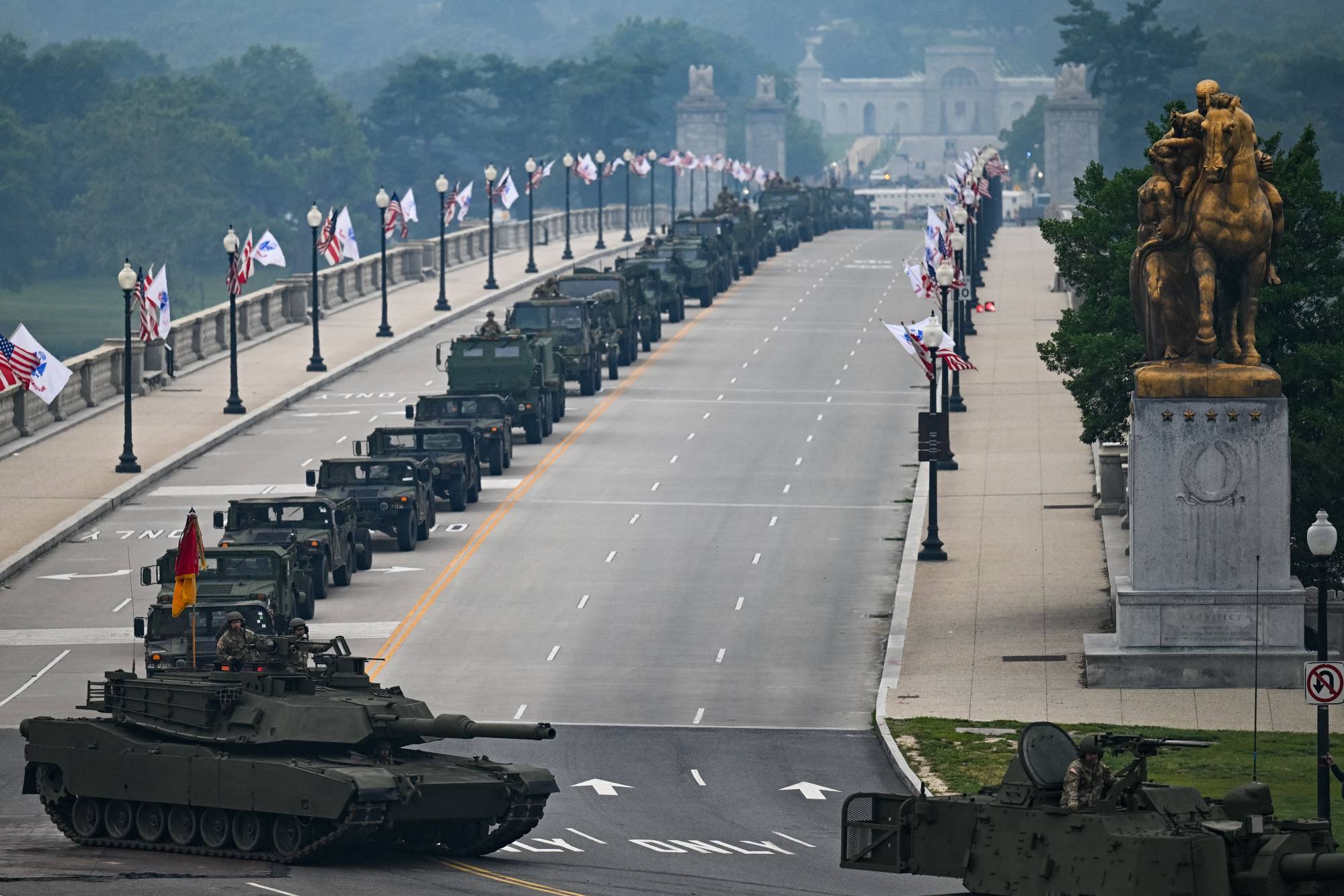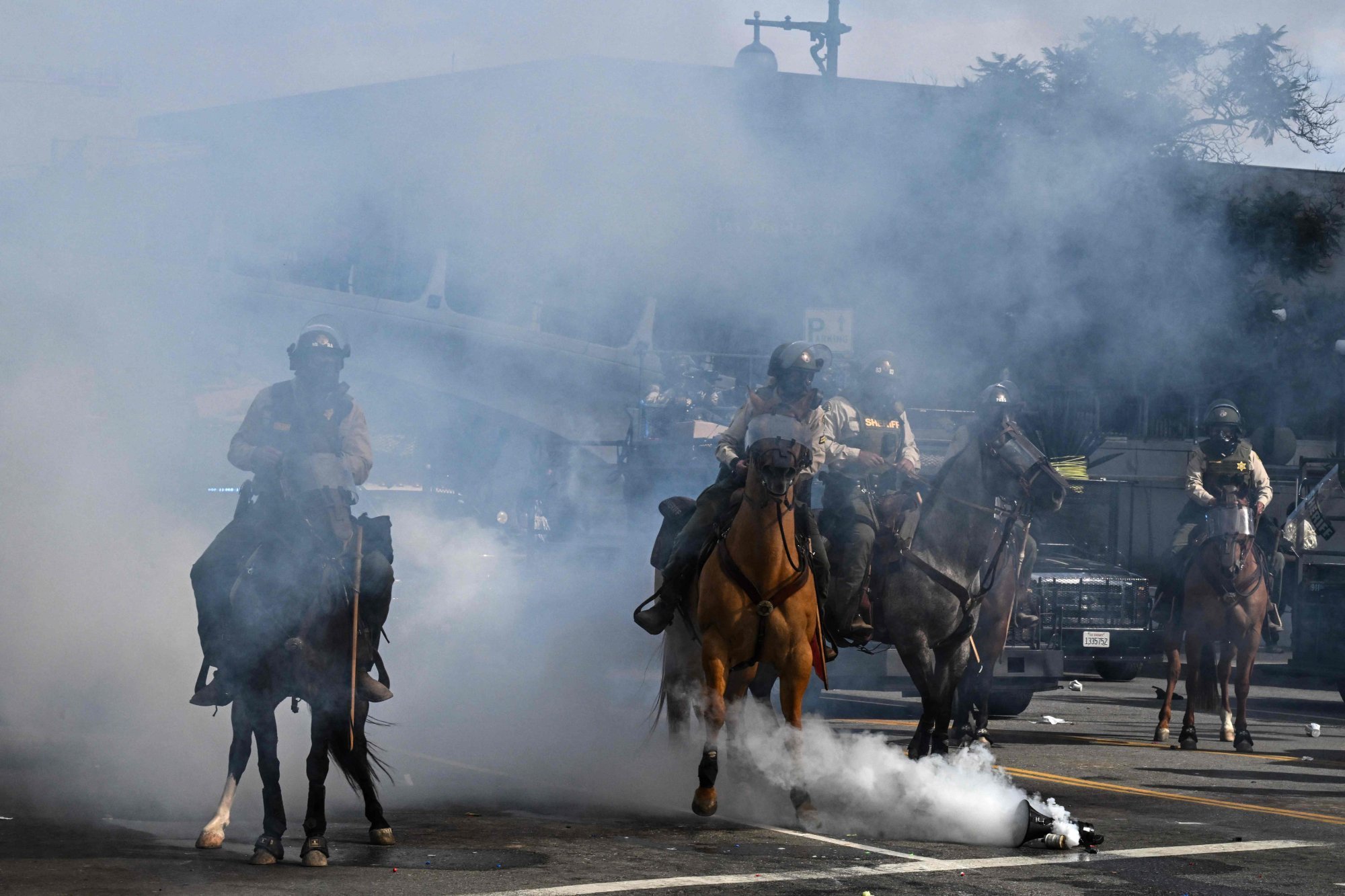‘Everything politicised’: Tokyo protesters hold anti-Trump ‘No Kings’ rally
Band of demonstrators in Japan is among the first in world due to time zone to stage the movement opposing perceived hubris by US president

A small but dedicated band of demonstrators took to the streets of Tokyo on Saturday, one of the first cities in the world to stage a “No Crowns! No Kings! No Tyrants!” protest against the policies of United States President Donald Trump.
Thousands of similar protests took place around the world and in all 50 US states on June 14, the 250th anniversary of the founding of the American army, coinciding with Trump’s 79th birthday.
The movement is aimed at opposing a rare military parade in Washington hosted by Trump, which comes days after unrest in Los Angeles over his immigration raids.
The demonstration in front of Tokyo’s busy Shibuya railway station was among the first in the world due to Japan’s geographical location.
Critics say the massive military parade that rolled through Washington on Saturday was a waste of around US$90 million in federal funds at a time when public services in America are being slashed.
Others among the more than 20 protesters – including Japanese – defying the rain in Tokyo on Saturday gave a range of reasons for their presence.
“It is very important that people show up to small protests like this around the world, to be visible and to show solidarity with those in the US who are feeling the effects of these policies,” said Sarajean Rossitto, an academic and NGO consultant.
“A lot of people are depressed at the situation in the US right now and they do not know what they can do to help, so this is one way they can participate,” she told This Week in Asia.
A leading member of the Tokyo chapter of Democrats Abroad, Rossitto said she hoped the event would also encourage more US nationals living in Japan to get involved in politics despite not being in America, to vote and to exercise their right to free speech on issues that matter to them.
“We want to engage and promote a sense of community so we can have an impact on the issues that affect us,” she said.
An American academic who only wanted to be identified by his first name, Tim, said he had been a long-term resident of Japan but had to move back to the US soon – and was deeply concerned about what he would find in his homeland.
“The democratic process has been seriously damaged and the people on the other side have no respect for rights,” he said. “I am a scientist and I deal in facts based on research and evidence, but these people have no respect for the truth, things that are real.
“Everything has become very politicised and it is deeply upsetting to see what is happening in the US right now.”

Another protester expressed concern for her safety when she returned to the US to complete her medical studies.
Maya, a 24-year-old from Boston presently studying in Australia, was in tears and admitted: “I’m worried.”
“I have to put eight-plus years into becoming a physician and the law has now changed so that ICE agents are able to come into hospitals to seize patients,” she said, referring to the crackdown by US Immigration and Customs Enforcement. “And if I try to protect that patient or stand in the way, I can also be detained. That is terrifying.”
“I’m Latina and of course I am worried about people being taken off the street,” she said. “I was born in the US, I grew up there and I am a US citizen, but when I look at everything that is going on there at the moment, I do not feel safe.”
Maya was on holiday in Tokyo with two fellow medical students, all of whom said they wanted to pause their trip to take part in a “No Kings” protest.
“We all thought it was important to take part, especially as I see more and more about ICE raids, troops on the streets of Los Angeles, weapons being used against protesters,” said 26-year-old Thea from Michigan.
“I wanted to stand up and show my support. I’m really worried about the future of our sector, healthcare, because so much is being affected, from abortion rights to insurance issues and ICE being allowed to enter hospitals to detain people,” she said.
“We all should be worried.”

Rossitto read out a message from Michael Ramos, chair of the Global Veterans and Military Families caucus of Democrats Abroad, who said what was happening in Los Angeles was “unfortunately, a perfect example of an inappropriate use of the US military by the nation’s commander-in-chief. The American people have a constitutional right to assemble and protest”.
It is not the job of 4,000 members of the National Guard and 700 US Marines “to enforce the president’s anti-immigration wish list,” Ramos said, adding that Trump was “using military force to suppress dissent”.
“That is not leadership,” the message added. “That is authoritarianism.”
Over the course of three hours, the protesters engaged with dozens of passers-by, many foreigners visiting one of Tokyo’s most popular tourist spots. Many called out support, others clapped or gave thumbs-up signs. There were no reports of confrontations or hostility and police were not deployed.